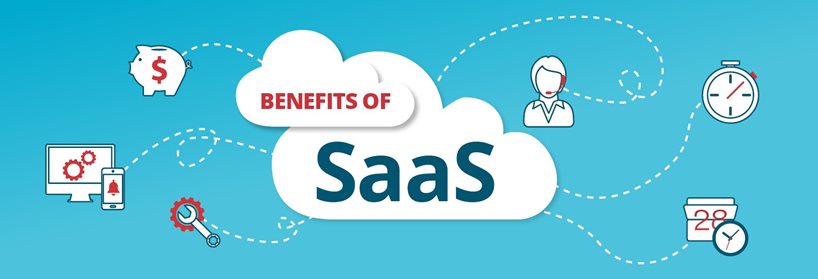Home » Blog » Trading & Risk Management » What is the Value of Using Software-as-a-Service?
What is the Value of Using Software-as-a-Service?
Business owners have a lot on their plate, but who says they have to go at it alone? Doing everything in-house may not be the most efficient or economical. Fortunately, Cloud Software-as-a-Service (SaaS) is one of the most efficient and effective ways to do business. This may explain why many companies previously using legacy systems for their Commodity Trading and Risk Management (CTRM) are turning to cloud-based systems. While there are many success stories to show how far the industry has come in providing hosted CTRM solutions, the move away from delivered systems has not been easy and for some companies, it is viewed skeptically.
We understand you have concerns and want to enjoy full and complete control of your systems, data, processes, and more. However, there are ways to view this differently and some reasons to rethink your strategy of relying on in-house legacy systems. There are many benefits to using Cloud SaaS-based solutions for your business needs — here’s why you should make the switch.
Let’s start with expertise. Cloud SaaS vendors have unique subject matter expertise in designing, developing, and managing software systems geared toward resolving clearly thought out business challenges. The number of man-hours spent in honing the skills, training, hiring the best talent, and even learning by doing cannot be easily replicated by businesses adopting the “do-it-yourself” strategy for their in-house systems. SaaS, therefore, means business users are empowered to operate solutions for their business purposes rather than focusing on supporting those systems.
Mentioning support, SaaS providers can deliver support when in-house support is typically inconvenient during non-business hours. SaaS clients can also benefit from vendors’ multiple data centers which support increased up-time availability in the event an operational issue occurs at an isolated site.
Another benefit? Timely upgrades. SaaS has made lengthy software upgrades a thing of the past. SaaS can be upgraded and seamlessly performed within the brief period of hours at data centers. This makes processes more efficient and ensures your business is operating on the most current solution version.
Not only are you saving time, but costs are significantly less. In contrast to other business model options, SaaS doesn’t involve buying licenses, dedicated IT groups, and investing capital into infrastructure. Scalability is another cost advantage of SaaS which typically allows businesses to add additional users and better manage costs when business needs dictate.
Lastly, hardware is no longer a capital investment. SaaS clients get to often enjoy the benefits of newer technology provided by software vendors. In the current fast-paced technological era we are living in, it is hard to determine what tech systems are the best to invest in and which will become obsolete. No one wants to spend their limited budget funding something today that will no longer be relevant or useful tomorrow. Fortunately, businesses that specialize in providing software make sure to keep up with industry trends so they can offer the latest and greatest technology to their clients.
Security concerns have grabbed many business leaders’ attention recently with the majority being breaches of public cloud data security. It is important for consumers to understand the critical features in data center deployment before making a choice of a Cloud SaaS solution vendor. One key consideration is whether the proposed provider has full ownership over the data center it uses or whether it outsources to a third party. Of critical value is knowledge of industry-specific security standards employed as part of cloud data management services, and whether it uses industry benchmarks or recognizable security standards.
Cloud-based, Software-as-a-Service solutions are a great option for companies large and small to increase efficiency and revenue, as long as cybersecurity is an organizational priority. At OATI, cybersecurity is of upmost importance given the company’s premiere role in not only developing business critical cloud solutions, but incorporating stringent security protocols that are unparalleled in the energy industry. Furthermore, OATI’s fully owned active-active data centers are built to withstand more than just cyberattacks and intrusion attempts. The company’s new Microgrid Technology Center houses one of its data centers and is a fully commissioned microgrid with the capability to provide uninterruptible power supply to the critical data center infrastructure during blackouts.
This commitment to data security, highly available infrastructure, benefits-driven Cloud SaaS solutions that range from IoT to microgrids, from generation optimization to an extensive suite of Energy/Commodity Trading and Risk Management Solutions, and proven success of the SaaS model for almost 25 years, make OATI a unique provider of robust SaaS solutions to meet your complex business needs.
About the author:
Jacob Cain has over 10 years of experience in the Commodity Trading and Risk Management industry. His experience includes energy and financial trading, energy scheduling and settlements, commodity risk management, renewable energy management, vendor solution selection and implementation, and fuel acquisition. As Senior Account Executive at OATI, Mr. Cain oversees OATI’s strategy to provide optimal CTRM solutions to investment banks, power marketers, Independent Power Producers (IPPs), and hedge funds. His experience in commodity trading, scheduling, risk management, and settlements allows him to develop strategic recommendations with respect to a client’s CTRM business needs. Cain received his B.A. in Business Administration from Georgia Southern University and his MBA from the University of Tennessee.
- December 5, 2017
